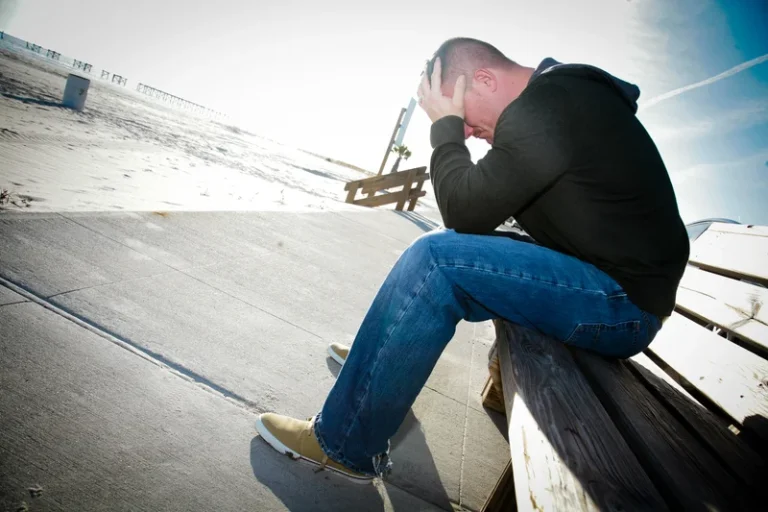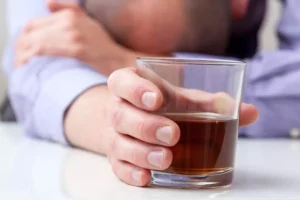
The 12 steps are a set of guiding principles that were developed by Alcoholics Anonymous (AA) as a way to help individuals struggling with addiction achieve and maintain sobriety. The goal of the 12 steps is to provide a framework for personal growth and spiritual development, as well as to help individuals learn to live a life free from addiction. Many 12-Step programs are well-known groups that use the concept of powerlessness to benefit recovery. The Alcoholics Anonymous (AA) Big Book says “powerless over alcohol” as its first principle. AA members believe they cannot control their drinking without the help of a higher power. This belief is what gives them hope and helps them stay sober.
- I finally understood what an alcoholic and addict really is.
- Our hope is merely to capture the spirit of the fellowships, and to approach people with the language they commonly use to describe the disease of addiction.
- Join our supportive sober community where each day becomes a step towards personal growth and lasting positive change.
- Getting help from others at a treatment facility and in peer recovery groups can benefit your sobriety.
Step 1 in AA and Al-Anon Programs Is Honesty
It encourages acceptance of the circumstances rather than denying them. Step 1 of Alcoholics Anonymous is often one of the most difficult for people. Whether you are attempting to get sober for the first time or you are returning to sobriety after a relapse, it can be hard to admit that you are unable to stop drinking on your own. It is a gateway to freedom and a proclamation of progress. As we go through the process of Step One, we are moving from a lack of awareness into an awareness of the reality of this disease and the possibility of change.
A Study of Step 12 of the 12-Step Program
Although the illusion of control may continue, their lives become unmanageable, because alcohol is really in control. When alcoholism or alcohol use disorder begins to take control of a family, usually one of the first things to go is honesty. The person with the problem often lies about how much they drink and those around them may begin to cover for them as the problem progresses. Some people believe AA is intricately tied to religion by seeking a “higher power.” Rather, AA members are encouraged to understand they’re powerless in changing their addictive behavior. In fact, many members don’t perceive a need for a “higher power.” Instead of seeking spirituality, which helps in recovery, they seek assistance from the AA fellowship.
Unpacking the 12th Step
Step one asks you to identify out loud that you have continued to use substances despite this use impacting your life and or the lives of others negatively. It is a beautiful paradox, that being “powerless” can ultimately empower one to make significant meaningful long-lasting change. Step One AA acknowledges that not only are you powerless over alcohol, but your life has also become unmanageable as a result. This unmanageability often manifests in various ways, such as deteriorating relationships, declining physical and mental health and a growing sense of despair. Recognizing this unmanageability is crucial because it propels individuals toward seeking help and making lasting changes.
- You are recognizing that alcohol is a powerful thing that could once again take control of your life.
- It makes so much sense when we look back at our behaviors—the threat of relationships ending, poor health, work-life, bad decisions, legal trouble, etc.
- Step one asks you to identify out loud that you have continued to use substances despite this use impacting your life and or the lives of others negatively.
- We let this Power remove the problem by practicing the rest of the steps as a way of life.
- The Steps are meant to be addressed in sequential order, but there’s no one « right » way to approach them.
- You aren’t powerless when it comes to entering treatment or a recovery program.
Find an AA meeting near you to hear from others in a similar position and receive judgment-free support. So you understand the benefits of Step One and of admitting powerlessness, but the next question then is why is such emphasis placed on being reliant on others to get yourself out of addiction? The philosophy behind this thinking is that your judgment was flawed enough to get yourself into this situation, it’s too flawed to get yourself out of it.
- It was a statistical fact that alcoholics rarely recovered on their own resources” (p. 22).
- Worldwide, alcoholics, addicts and treatment professionals embraced the Twelve Steps, and more than 35 million copies of AA’s Big Book have been distributed in over 70 languages.
- It also is not a lack of agency that implies we are helpless when it comes to choosing between right and wrong.
We are beginning to believe that we are capable of living in a different way. Letting go of the past, accepting your present and opening yourself up to a new way of living isn’t an easy thing to do, especially in the beginning. The 12-step road to recovery can appear pretty intimidating to someone who is just starting out, but solutions exist. To learn more about Alcoholics Anonymous, read why it still works all these years after its creation. If you’re interested in learning how you can leverage a 12-step group to help your recovery, contact FHE Health and learn about our aftercare and support group options.

Addiction and Mental Health Resources

The length of time it takes to complete the 12 steps of a recovery program can vary greatly depending on the individual and their circumstances. Some people may be able to work through the steps relatively quickly, while others may take months or even years to complete the process. It’s important to remember that recovery is a lifelong journey and the 12 steps are simply one part of that journey. After getting to know its principles, you may want to try the program, or include it as part of your post-rehab aftercare plan.
List of Examples of Powerlessness in Sobriety
You may have noticed your life in chaos—maybe you’ve lost your home, your job, your family, your possessions, or your self-respect. You may have seen the inside of hospital rooms or jail cells. Regardless of how you got to this point, Step 1 of AA is merely realizing that your alcohol abuse disorder was interfering negatively with your life, and you need to change.

Thinking About Treatment?

By practicing abstinence, alcohol cannot wield its power over you. And when you start living a sober life, then you can gradually gain your power back as your power comes from sobriety. This is a common question asked by people who are new in their recovery journey.

